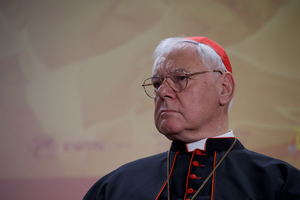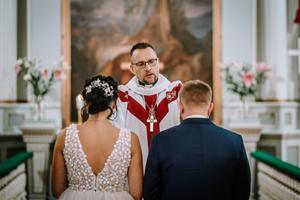Italian Freemasonry Magazine Endorses Vatican’s Document on ‘Human Fraternity’
The Catholic Church has long condemned Freemasonry, stressing that its principles are irreconcilable with the Catholic faith.

The document on human fraternity that Pope Francis and Sheikh Ahmed el-Tayeb, Grand Imam of Al-Azhar university, co-signed last year in Abu Dhabi, has been given a ringing endorsement in the magazine of Italy’s largest Freemasonic fraternity.
The document on “Human Fraternity for World Peace and Living Together” is “innovative” and a “slow-release drug” that could herald a “new era” and represent a “turning point for a new civilization,” writes Pierluigi Cascioli, a journalist with Nuovo Hiram, the quarterly magazine of the masonic Grand Orient lodge in Italy.
He adds that the text “is important both because of the two authoritative joint signatures and for its content.”
The five-page document was praised when it was published as an effort to push back a drift toward a “clash of civilizations,” but it also received criticism for its syncretic elements and a controversial passage that stated the “diversity of religions” is “willed by God.”
In his article, Cascioli advises giving the document a “thorough reading,” and argues it has “noble pages,” which “should be carefully considered” not only by Christian and Catholics and Muslims, but all humanity.
Cascioli sees the document as offering an impetus to both the Church and Islam to “do more to ensure that there is effective equality between women and men.”
Referring to the preface of the document, he asks whether its condemnation of discrimination and its call for “mutual respect” will lead to “respect for women and men who have homosexual or bisexual tendencies?”
“Every human being is unique and inimitable,” he says, and should have “the right, (or, better, the duty) to experience his or her own eroticism according to his or her own nature.” He then refers to the nations that criminalize homosexuality, particularly in the Islamic world.
He further wonders if the “monarchical” structure of the Church is at odds with the egalitarianism he sees in the document, and speculates whether the Church’s social doctrine will need to be “updated” in the “light of the innovative values of the Document.”
Pope Francis and the Grand Imam express “avant-garde positions,” he observes, and he wonders how many Catholics and Muslims will follow them. “How far ahead of their respective ‘bases’ are the two leaders?” Cascioli muses. “Pope Francis is far from his base; the Grand Imam is very far from his.”
But he prefers to take the long view, believing “Human Fraternity” is “like a slow-release drug.” It would be “illusory to expect immediate, great upheaval, but it could open a new era,” he argues. Cascioli says Francis and el-Tayeb have “built an airport runway” for the document’s values, but for the contents to “take off,” there must be a “strong impulse,” which allows them to “overcome the force of gravity.” People should have the “courage of fraternity,” he says, and so “take off towards a better world.”
“The Freemasons, who have fraternity at their center, will not be able to avoid discussing this Document,” he writes. “In applying this principle, will Catholics and Sunnis want to dialogue with Freemasons?”
The Catholic Church has long condemned Freemasonry, stressing that its principles are irreconcilable with the Catholic faith, and teaching that for a Catholic to belong to it is a “grave sin” that automatically disqualifies him from receiving Holy Communion.
Masonic rituals are inimical to Catholicism and a strong anti-Catholicism also permeates Freemasonry, according to Father William Saunders in a 1996 article published on EWTN’s website. Some particularly strong critics, such as Auxiliary Bishop Athanasius Schneider of Astana, Kazakhstan, also believe its higher ranks are committed to worshiping Satan.
- Keywords:
- edward pentin
- freemasonry
- italy
















